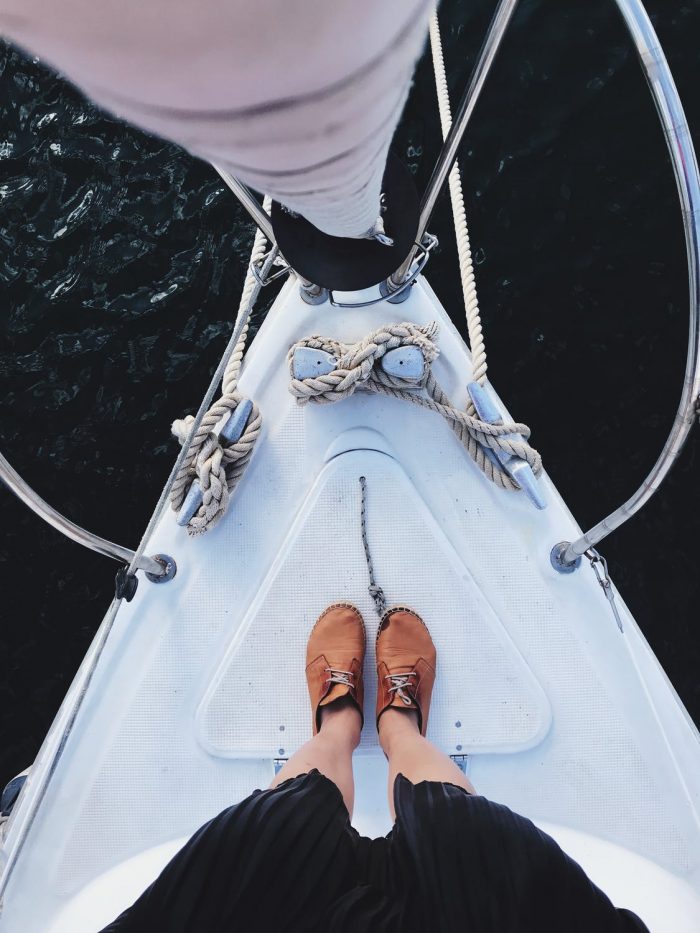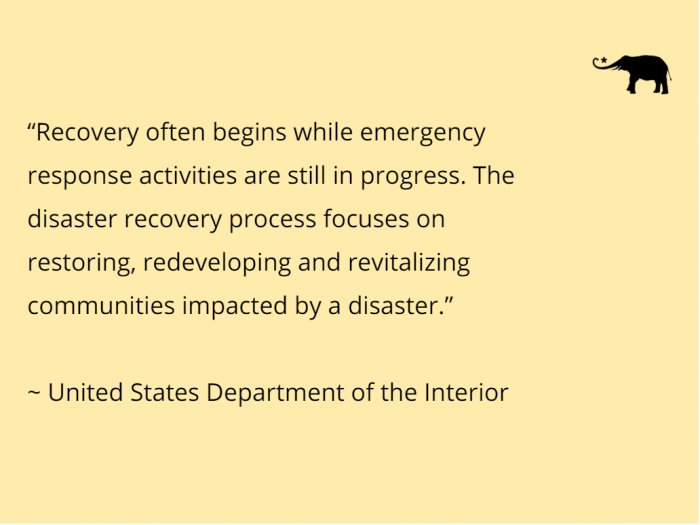“I heard it said that we are all in the same boat, but it’s not like that. We are in the same storm, but not in the same boat. Your ship could be shipwrecked and mine might not be. Or vice versa.
For some, quarantine is optimal: a moment of reflection, of reconnection, easy in flip flops, with a cocktail or coffee. For others, this is a desperate financial & family crisis.
In some homes a sole occupant faces endless loneliness. In others, family members are getting peace, rest, and time with each other- while still others, quarantine means an increased danger due to domestic violence.
With the $600 weekly increase in unemployment some are bringing in more money to their households than they are working. Others are working more hours for less money due to pay cuts or loss in sales. Some families of 4 just received $3400 from the stimuli while other families of 4 saw $0.
Some were concerned about getting a certain Easter candy while others were concerned if there would be enough bread, milk and eggs for the weekend. Some want to go back to work because they don’t qualify for unemployment and are running out of money. Others are angry at those who break the quarantine.
Some are spending 2-3 hours/day helping their child with online schooling with others are spending 2-3 hours/day to educate their children on top of a 10-12 hour workday.
Some have experienced the near death of the virus, some have already lost someone from it and some are not sure if their loved ones are going to make it. Others don’t believe this is a big deal. Some have faith in God and expect miracles in 2020, others say the worst is yet to come.
So friends we are not in the same boat. We are going through a time when our perceptions and our needs are completely different. Each of us will emerge, in our own way from this storm. It is very important to see beyond what is seen at first glance. Not just looking, actually seeing.
We are all on different ships during this storm experiencing a very different journey.”
~ Author unknown (but possibly inspired by a Damian Barr tweet).
~
These words jumped off the page and shook me.
They said, ”Share me so people will hear my message.”
While the author remains unknown, the impact of their words need not be. This is why I’ve shared with you.
Think of COVID-19 as a natural disaster rather than a public health crisis. Until now, we have spent every hour of every day discovering what it all means.
Doctors had to learn on their feet. Patients were rescued and delivered to hospitals in full-blown medical crises. Every encounter was a matter of life and death, and every encounter put caregivers at risk for the same. Front line workers applied their medical skills, yet an element of trial and error was required while treatment protocols were developed. It was on-the-job training.
The next phase consisted of continued medical crises as researchers in labs worked endlessly to create a safe and efficacious vaccination tout suite. Statistics were skyrocketing while hospitals ran out of ventilators, and then beds. Makeshift Covid wards were being set up in parking lots under tents. Nurses and doctors were suffering their own symptoms of exhaustion; some would be exposed to the virus and become ill. Soon, caregiver infections were on the rise; some would be granted medical leave and others never returned. A shortage of equipment now became a shortage of qualified caregivers.
Now, take a step back from the health crisis to see the even bigger picture.
Layer on the needs of the public in this crisis. What questions do you think a team of emergency workers ask themselves as they scour the scene of a hurricane, tornado, or earthquake? It’s a process of constant triage. Who needs immediate attention because they have the most significant need? Do they hear cries for help, signs of life? How can they find out who is alone and too sick to call out? How can we create a network of communication? Where is our energy best served?
This is the meat and potatoes of the rescue phase of a natural disaster—pulling bodies out of the rubble and getting them to safety. There is still hope in the unknown.
In the case of Covid, it’s finding the sick and assessing what to do with them. Are they so sick they meet the medical criteria to be admitted: trouble breathing or respiratory distress? Is there a bed for them? Will there be a ventilator if their illness progresses? What happens when we search? What do we do with what we find?
Feel the despair as the mission goes from search and rescue to recovery. This is the official designation that the search has been called off and the priority of the mission has shifted from looking for life to recovering the dead. In the Covid analogy, the focus shifts from finding the sick to categorizing their needs. What kind of financial injury have they sustained? Was it critical or can they be revived? Who cannot feed their families? Who cannot manage homeschooling because they have to work? Are children being left unattended in an unsafe environment? How can patients quarantine from family members who have tested positive?
Where can government-subsidized agencies step in and lift the heavy burden that is crushing the American people? What kind of assistance do those out of work need the most? How can the general public be encouraged to behave in a manner that facilitates an environment necessary for public health to be restored? During a natural disaster, they simply close off all roads leading to the scene. How can the public’s safety be ensured while keeping the roads open?
I believe we are still in the thick of recovery. Note the distinction between this and the wishful thinking that we’re finished.
I live in a destination community. People travel here for getaway weekends and vacations. During season, they come in record numbers. When I drive down the Avenue toward the ocean, I am awestruck by the crowds of people walking shoulder to shoulder—standing room only—waiting in line for restaurants and bars. Masks are the exception rather than the rule. Most of these people have decided they’re done, so it’s done.
This is fertile ground for relapses to occur. Numbers are surging in some communities as a result of spring break activities, Easter vacations, Jewish holidays, and whatever else is springing up this time of year. Those who have received the vaccine may have convinced themselves life goes back to normal. But even when everyone has received the vaccine, there is still work to be done so we can get to our new normal.
I am not an emergency management worker, nor do I play one on CNN. I am simply a concerned citizen who wants to reinforce the need to be present and mindful.
If you are vaccinated, you could still pose a risk to those who have not yet been. Masks are still the best line of defense. In the greater scheme of things, a mask seems like a small sacrifice. Think of the golden rule. Imagine every person you see as one of your own family members. Picture every child you encounter as your own. Conduct yourself in a way that will help to keep them safe. Their family, your family—it takes a village. It is not over. Keep paddling.
We are all trying to recover from a different storm. For some, the waters were kind and it was a quiet time to drift, perhaps with family. For others, isolation made the waters rough. Some capsized and could not survive. Those they left behind are still navigating. Many are still feeling the effects of the storm. Those who still feel seasick are reminded daily of the thrashing they took and may still be taking.
”We are all on different ships during this storm experiencing a very different journey.”
Recovery may be instant for those who had an easy voyage. They might step right back into their pre-Covid stride.
I’m not so sure I want to go back to mine. I’ve learned and grown so much, and I am not sure I remember what life felt like that long ago. The recovery phase for those who suffered unimaginable loss will likely be constant until it slowly fades into the horizon. We are all forever changed by this experience, no matter the intensity of our personal storm.
Place your life preserver over your head, put on your mask, and keep an open heart. Look for those in different boats who may need a kind word or maybe a tow.


 Share on bsky
Share on bsky






Read 16 comments and reply